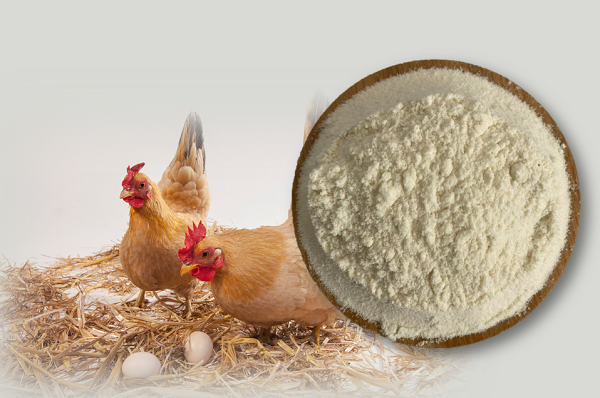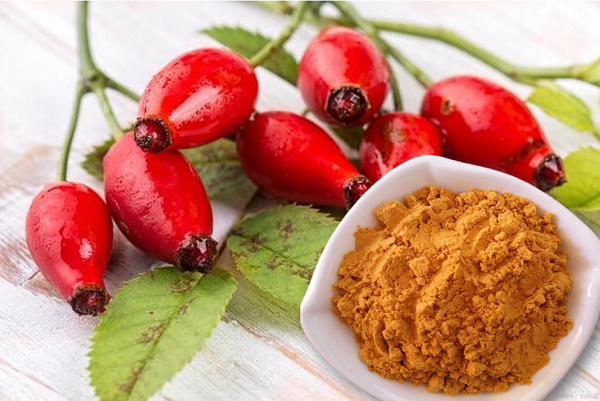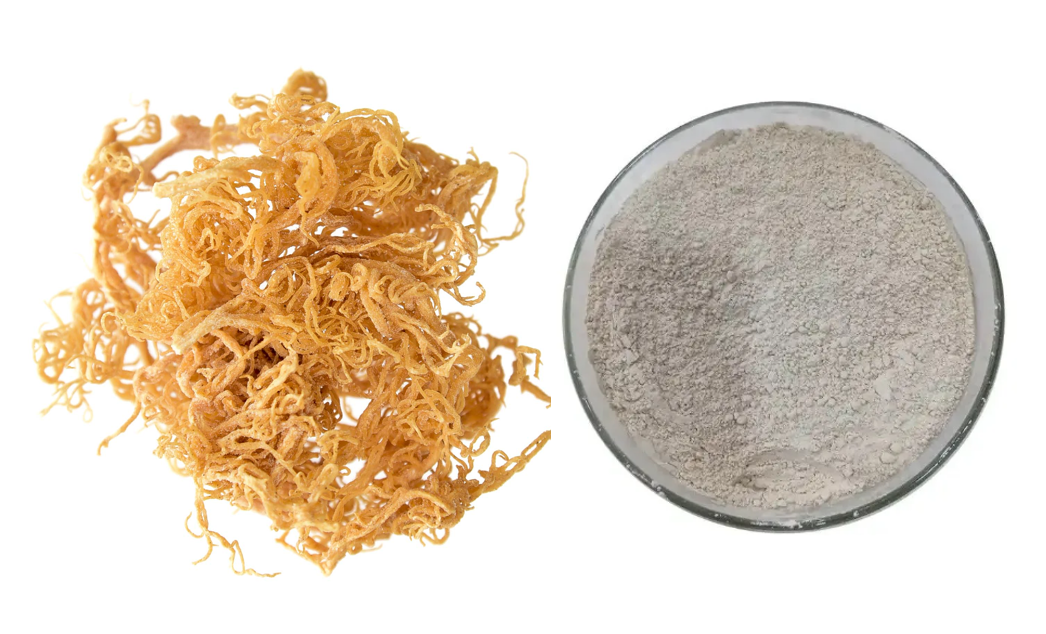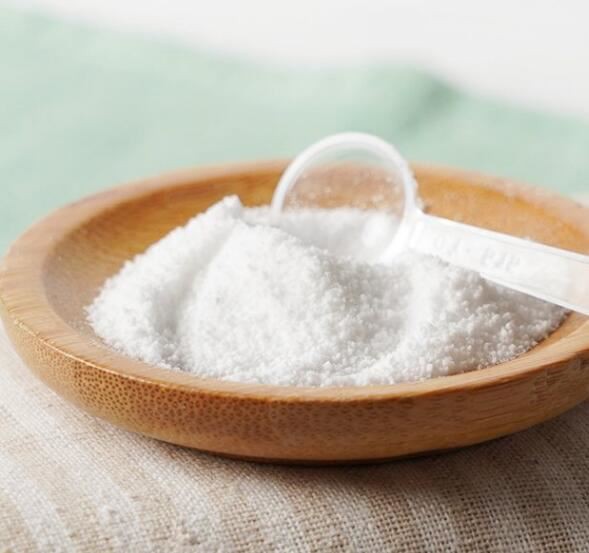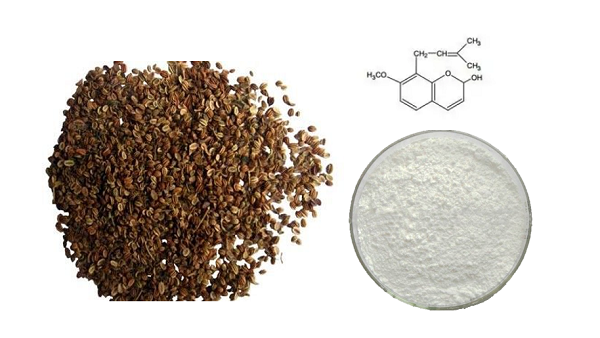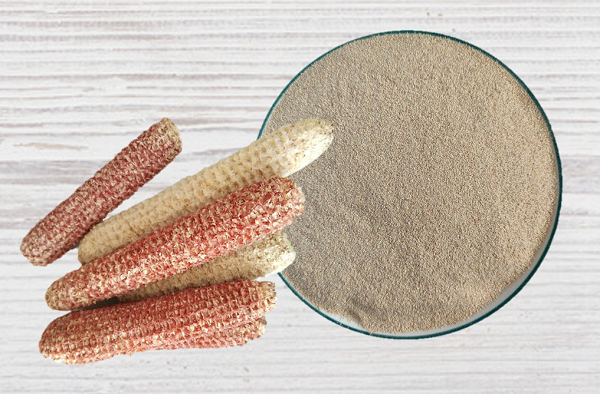Follow Us:
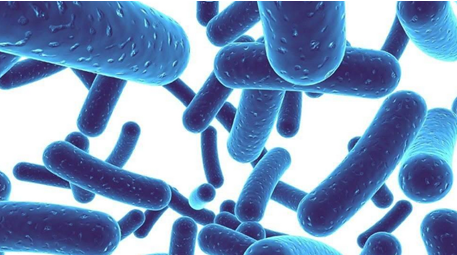
Does Probiotics and Prebiotics Benefit for Animal Nutrition?
Yes, probiotics and prebiotics can benefit animal nutrition by improving the health of the animal and the quality of the meat, milk, and eggs. These two complementary nutritional supplements are increasingly being recognized for their positive impacts on digestion, immunity, and overall animal health. But what are the benefits of probiotics and prebiotics for animals? Do they offer tangible, long-term improvements in animal growth, productivity, and disease resistance? As a probiotics and prebiotics supplier, in the following sections, we’ll explore these questions in detail.
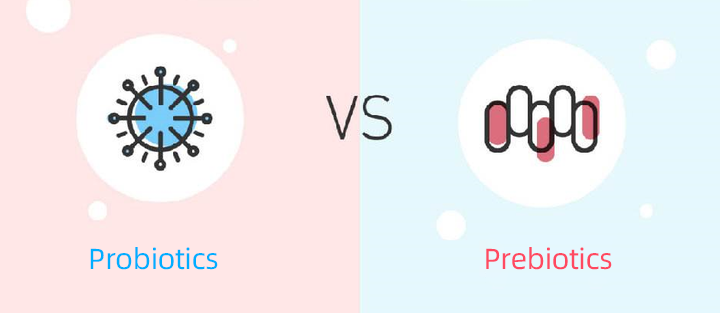
What are Probiotics and Prebiotics?
Probiotics are live microorganisms, primarily bacteria and yeast, that provide health benefits when consumed in adequate amounts. These beneficial bacteria help to balance the gut microbiome, promoting a healthy digestive system and enhancing overall wellness.
Prebiotics are non-digestible food components, typically fibers, that promote the growth and activity of beneficial microorganisms (like probiotics) in the gut. They act as food for the good bacteria, helping to foster a healthy microbiome and improve digestive health. We have probiotics and prebiotics for sale.
Benefits of Probiotics and Prebiotics in Animal Nutrition
1. Probiotics: Targeting Gut Health
- Enhancing Digestive Health: Probiotics improve digestion by increasing the availability of nutrients from the feed, allowing animals to absorb more energy, vitamins, and minerals. This is particularly important in livestock, as it directly translates to better weight gain and improved feed conversion ratios.
- Competition Against Pathogens: Probiotics in Probiotics can outcompete harmful bacteria in the gut, reducing the risk of infections like Salmonella or E. coli. This natural protection leads to reduced need for antibiotics, contributing to healthier, more sustainable farming practices.
- Strengthening Immune Function: A healthy gut microbiota is key to supporting the animal’s immune system. Probiotics help modulate immune responses, making animals more resilient to stressors and diseases.
- Improving Animal Productivity: Probiotics have been shown to enhance growth rates, milk production, and reproductive performance in various livestock species. Whether you’re working with poultry, swine, or cattle, the right probiotic strains can increase overall productivity.
2. Prebiotics: Nourishing the Microbiome
- Supporting Probiotic Function: By feeding the good bacteria in the gut, Prebiotics enhance the effectiveness of Probiotics. This symbiotic relationship creates a stronger, more stable gut ecosystem that supports better digestion and nutrient absorption.
- Improved Gut Barrier Integrity: Prebiotics can help fortify the intestinal lining, making it more resistant to pathogen invasion and improving overall gut health. This leads to fewer gastrointestinal disorders, such as diarrhea or bloating, which can be costly for farmers.
- Increased Digestive Efficiency: Many Prebiotics are fibers or oligosaccharides that serve as substrates for fermentation by beneficial gut microbes. This process produces short-chain fatty acids (SCFAs), which provide energy for the gut cells and support overall digestive efficiency.
- Enhanced Immune Support: Just like Probiotics, Prebiotics help support the immune system indirectly by creating an environment where beneficial bacteria thrive, producing metabolites that enhance the animal’s natural defense mechanisms.
3. Probiotics & Prebiotics
- Balanced Microbiome: Probiotics introduce beneficial microorganisms, while Prebiotics nourish them. This balance helps maintain an ideal microbial population, preventing overgrowth of harmful bacteria.
- Enhanced Performance and Sustainability: By reducing the need for antibiotics and supporting optimal feed utilization, you can promote more sustainable farming practices. This leads to healthier animals, higher productivity, and reduced environmental impact.
- Stress Resistance: Animals, especially during periods of stress such as weaning or transportation, benefit from this balanced approach. Probiotics and Prebiotics together can help mitigate the negative effects of stress on performance.
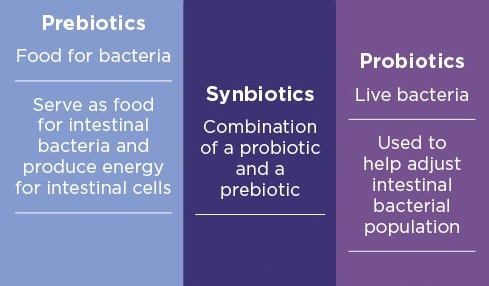
Which Animals Can Benefit from Probiotics and Prebiotics?
Animals That Can Benefit from Probiotics
- Dogs
Probiotics are particularly beneficial for dogs, especially when they experience digestive issues like diarrhea, gas, or constipation. Probiotics can help balance their gut flora and improve digestion. They can also aid in recovery after antibiotic treatments or stressful situations like travel or changes in diet.
- Cats
Like dogs, cats can benefit from probiotics to support a healthy gut microbiome. Probiotics can be useful for addressing digestive upset, such as diarrhea, vomiting, or inflammatory bowel disease. Probiotics can also help reduce stress-related digestive issues, especially in multi-pet households or during changes in routine.
- Horses
Probiotics play a crucial role in maintaining a horse’s digestive health. Horses are particularly sensitive to disruptions in their gut flora, which can lead to colic or other gastrointestinal issues. By supplementing their diet with probiotics, you can help restore balance to their digestive system, improve nutrient absorption, and support overall gut health.
- Rabbits and Guinea Pigs
These small herbivores benefit greatly from probiotics to maintain healthy gut flora. Probiotics can help with digestive issues like bloating or diarrhea, often caused by sudden changes in diet or stress. They are also essential for helping to maintain proper gut motility and fiber digestion.
Animals That Can Benefit from Prebiotics
- Dogs and Cats
Prebiotics supplements, such as digestive enzymes or fiber supplements, can be just as beneficial for your pets. If your dog or cat has a condition like pancreatitis, digestive enzyme supplementation can support the breakdown of food and nutrient absorption. Similarly, fiber can help with constipation or regulate bowel movements in pets with sensitive stomachs.

- Birds
Birds that struggle with feather-plucking or have low energy levels can benefit from Prebiotics supplements that include vitamins, minerals, and antioxidants. These nutrients support their immune system and overall health, without necessarily needing probiotics.
- Horses
Horses often need prebiotics supplements like joint support formulas, amino acids, or electrolytes, especially for performance or aging horses. These supplements can improve mobility, stamina, and overall vitality without the need for probiotic intervention.
What Role do Probiotics and Prebiotics Play in Livestock Nutrition?
Probiotics: The Functional Probiotics
Improved Digestive Health: Probiotics work by crowding out harmful pathogens, improving the gut’s ability to digest nutrients, and preventing gastrointestinal disorders like colic or scours in young animals.
Enhanced Growth and Performance: By optimizing nutrient absorption, Probiotics can lead to better weight gain, improved feed conversion ratios, and more efficient use of resources in both poultry and livestock.
Boosting Immunity: Probiotics can stimulate the immune system, increasing the animal’s natural resistance to infections and diseases. This is particularly important in environments where animals are under stress or exposed to various pathogens.
Prebiotics: Prebiotics for Gut Health
Gut Microbiome Support: Prebiotics provide a substrate that encourages the growth of beneficial bacteria. In turn, this can improve digestion, reduce harmful bacteria, and increase the overall balance of the microbiota, ensuring that probiotics can thrive and perform their roles more effectively.
Sustained Probiotic Activity: Prebiotics can create an environment where probiotics remain viable and active for longer, boosting their efficacy over time. This makes them a valuable addition to any livestock nutrition plan, enhancing the long-term benefits of probiotics.
Gut Health and Performance: Prebiotics can help regulate the gut environment, reduce inflammation, and even improve the absorption of nutrients. This leads to healthier animals, reduced incidences of diseases, and better overall productivity.
Common Specifications of Probiotics and Prebiotics in Animal Nutrition
Probiotics Minimum Effective Dose (CFU/g or CFU/ml)
- Probiotics are typically quantified in colony-forming units (CFUs), which measure the number of viable microorganisms in a dose.
- A typical specification could be anywhere from 1 x 10⁸ to 1 x 10¹² CFU per gram of product, depending on the specific animal species and intended application.
- It’s important to highlight the minimum guaranteed CFU at the time of expiry, as the potency of probiotics can degrade over time, especially if they are not stored correctly.
Prebiotics Minimum Effective Dose (CFU/g or CFU/ml)
1.Inulin or FOS (Fructooligosaccharides):
Minimum Effective Dose: 3–5 grams/day.
2.Galactooligosaccharides (GOS):
Minimum Effective Dose: Around 3 grams/day.
3.Resistant Starch (e.g., from green banana flour, potato starch):
Minimum Effective Dose: 4–5 grams/day.
4.Formulation and Delivery
- Form: Probiotics are typically available in the following forms:
- Dry Powders: Common for mixing directly into animal feed.
- Pellets: Probiotic pellets are mixed with animal feed or used as standalone supplements.
- Liquids: Some liquid probiotic supplements are added to water or feed.
- Granules or Tablets: Used for specific animals or as part of more controlled feeding programs (e.g., companion animals).
Synergy: Probiotics are often combined with prebiotics or other nutritional additives (such as vitamins or minerals) to enhance their overall efficacy.
Conclusion
As a botanical feed ingredients manufacturer, I believe that integrating both probiotics and prebiotics into animal nutrition is a highly effective strategy for improving animal health, performance, and productivity. Contact us today to place your order and benefit from fast delivery and COA support.
Reference: https://gutpathogens.biomedcentral.com/articles/10.1186/s13099-018-0250-0













